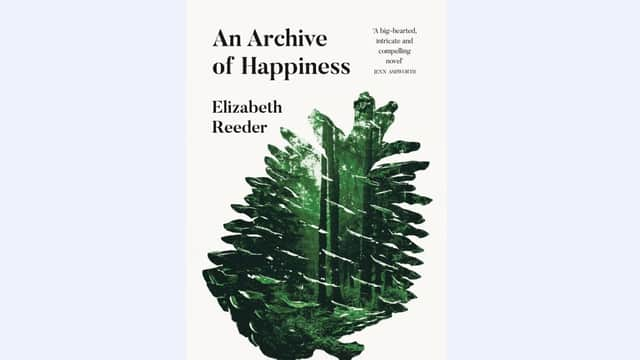Book review: An Archive of Happiness, by Elizabeth Reeder


As novels go, Elizabeth Reeder’s An Archive of Happiness makes a tremendous storyboard for a screen family drama – probably a blockbusting three-part television series. The Avens family, at the centre of the story, seem at first glance a striking and characterful bunch. There’s Aunt Grace, who makes a living cooking for billionaires on their yachts, and then returns for the summer to her cottage on a hillside near Inverness, always bringing along her latest gay squeeze.
There’s Grace’s niece April, who after a rackety youth has washed up in a cottage on the same hillside, and is working in a local pub. There’s her brother Ben, who works on the rigs; there’s April’s twin sister Nic, who lives in a croft on the west coast with her husband Charlie, their three-year-old son Finn, and new baby Star. There’s their long-divorced Dad, Sonny, who has also found a house on Grace’s hillside, after a career as an engineer for a weapons company of which most of his family disapproved. And somewhere in the background is their estranged mother Viv, Grace’s sister, who walked out 15 years ago, but sometimes threatens to return.
Advertisement
Hide AdThe family is mixed race, a fact of which Reeder makes relatively little, but which would allow a good screen director endless scope for visual reminders of the double-takes and long looks experienced by black and mixed-race people in overwhelmingly white communities. All of the action takes place in ravishing Highland settings, with the characters endlessly running, driving, cycling and swimming through glorious landscapes. And finally, the action of the novel revolves around a single, terrible family tragedy which is experienced in flashback, flash-forward, and real time, creating a powerful visual image around which to build a screen drama.
How well the story works as a novel, though, is more debatable. Despite their surface vividness, the Avens family characters often seem elusive and difficult to picture, as if they were just waiting for some well-known actor to step in and give them substance. The novel is not long, yet contains huge amounts of descriptive detail, not only of landscapes and journeys through them, but of moments in the lives of various characters, described at a length that often assumes a level of interest that has not yet been earned. There’s a marked intensification of the pace and purposefulness of the writing at the moment, two-thirds of the way through the book, when we experience the tragedy in real time, suggesting that that moment is perhaps the true starting-point of the novel; either way, something about its current structure seems to have made it difficult to strip out non-essentials.
What we’re left with, it seems – as we reach the book’s reflective final pages – is a story about a family that, despite all its tensions and limitations, is “good enough” to weather the terrible storm that hits it, and to keep facing towards the future, with love and hope. It’s striking that perhaps the most fully-realised character in the whole story is three-year-old, Finn; the one whose life is torn apart by disaster, but who is held in a family embrace that enables him to survive into a different but still joyful future. The idea that love is the answer is hardly a new one. Yet if the point is that we need an archive of love and happiness, stored in memory, to carry us through life’s grim moments, then Reeder creates at least one character, in little Finn, whose archive we can read; and whose experience therefore becomes ever more real to us, as the book moves towards its heartfelt conclusion.
An Archive of Happiness, by Elizabeth Reeder, Penned in the Margins, 300pp, £9.99
A message from the Editor:
Thank you for reading this story on our website. While I have your attention, I also have an important request to make of you.
The dramatic events of 2020 are having a major impact on many of our advertisers - and consequently the revenue we receive. We are now more reliant than ever on you taking out a digital subscription to support our journalism.
To subscribe to scotsman.com and enjoy unlimited access to Scottish news and information online and on our app, visit https://www.scotsman.com/subscriptions
Joy Yates
Editorial Director